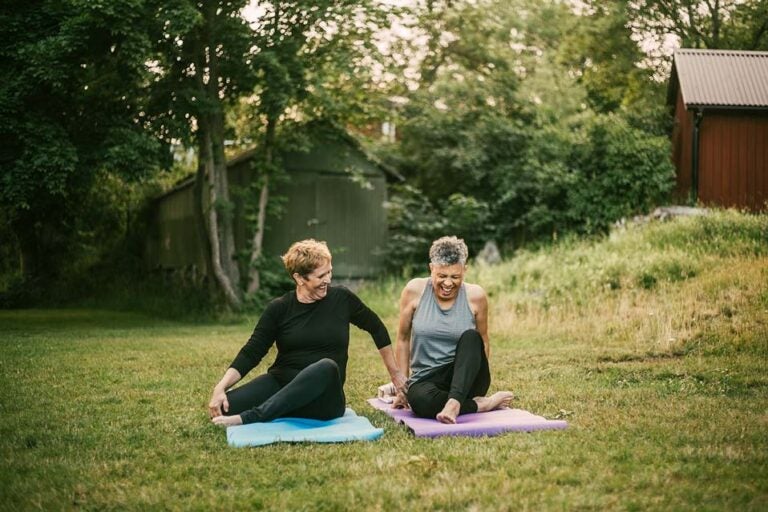Though many people spend their working years looking forward to the freedom retirement offers, finding fulfillment after retirement can be elusive, not least because a wide-open calendar presents problems of its own.
“Many retirees go through the honeymoon phase and then say, ‘What am I going to do with all this time?” says Karen Midyet, Ph.D. in psychology, who primarily works with individuals transitioning into or already in retirement.
You may have retired, but finding fulfillment after retirement takes effort. Midyet and other longevity and retirement experts offer these tips to help.
Put Some Dates on Your Calendar
A simple solution to the empty feeling that comes with having too much time on your hands is to fill it. Jill Liberman, happiness expert, and life coach, recommends planning a daily activity and scheduling it for the same time each day. “It can be as simple as a phone call with a grandchild each afternoon at 4:00, reading a good book before lunch, or taking a nice walk,” she explains.
It can also be a regular date with another person or people in a class or meetup group that helps you stay connected with people now that your work obligations don’t require it. “Try something new. Maybe it’s drawing or painting with others in a class, tap your creativity,” says Liberman.
Keep Your Body Moving
Though the advice to keep moving may seem cliche and trite, its importance to your own sense of well-being can’t be underestimated. “With each new study, it just becomes more evident … the more you move … you reap more benefits,” says Deevy. “The number of chronic conditions is reduced, and the number of medications people take is often lessened. Mental health and well-being improve.”
Exercise doesn’t need to be a chore. Kyle suggests finding fun and easy ways to move your body, like taking stretch breaks in your day or playing with grandkids. “You could try activities you haven’t yet experienced but are curious to try—Tai Chi, Zumba, pickleball, or indoor rock climbing,” she adds.
Find Meaning by Seeking It
Filling your calendar and staying active can contribute to fulfillment but finding happiness will likely require digging a little deeper and finding a source of gratitude. “You should engage in something that gives you meaning and purpose and a reason to get up in the morning,” says Martha Deevy, associate director and senior research scholar at the Stanford Center of Longevity.
Though people often think of retirement in terms of endings, ever-lengthening lifespans mean many people have ample time in retirement to start over and develop new passions and pursuits. To help people find what’s next, Midyet asks, “Who do you want to be when you grow up again?”
To help find your spark, Liisa Kyle, Ph.D., life coach and author of “Making the Most of Your Retirement: Ways to Foster Health, Happiness & Fulfillment at Any Age,” recommends asking yourself what you love to do. “If you are not doing what you love now, why aren’t you? Why not start?” asks Kyle.
It’s one thing if you are physically unable to do something you love (although even then, there are often workarounds). But upon investigation, people often find roadblocks are trivial and easily removed.
You may even investigate the possibility of an encore career or a new business. Midyet encourages her clients to envision new avenues they were always interested in but never pursued. “[Many people] did what was expected of them,” Midyet says. Now it’s time to put yourself first.
Seniority is published by Finance of America Reverse LLC. The views expressed in this publication are those of the author alone and do not necessarily reflect the views and opinions of Finance of America Companies. This article is intended for general informational and educational purposes only and should not be construed as financial or tax advice. For more information about whether a reverse mortgage may be right for you, you should consult an independent financial advisor. For tax advice, please consult a tax professional.




